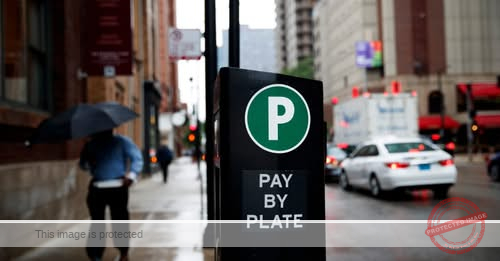
Former Mayor Richard M. Daley’s infamous parking meters deal could soon cost Chicagoans another pile of cash.
City attorneys are recommending aldermen approve a deal to settle for $15.5 million three long-standing disputes with the company that owns the meters, Chicago Parking Meters LLC. The proposal is part of the agenda released Thursday for the City Council’s upcoming Finance Committee meeting, where aldermen will consider a package of settlements.
The amount is far below the $322 million the company initially demanded and the $120.7 million figure city appraisers more recently shared. Leaders in Mayor Brandon Johnson’s administration touted the sum as a good deal amid the broader bad one.
“We look forward to closing this chapter and focusing on a more constructive relationship with CPM moving ahead,” Chief Financial Officer Jill Jaworski wrote in a statement Thursday.
Corporation Counsel Mary Richardson-Lowry said the arbitration deal resolves three previously reported disputes between the city and company.
Chicago Parking Meters first took legal action against the city in April 2024 to enforce the arbitrator’s ruling that it was twice shorted by Chicago under former Mayor Lori Lightfoot.
The company alleged Lightfoot’s administration violated the parking meter deal with an alleged scheme to take advantage of parking space value fluctuations and by temporarily suspending parking meter enforcement at the start of the COVID-19 pandemic.
The company’s claim that Lightfoot’s pandemic decree cost them millions comes despite the fact a Tribune investigation found the city issued more than 35,000 parking tickets during the time the mayor told motorists they wouldn’t get dinged for parking at expired meters.
Richardson-Lowry said the claims involved meter violation enforcement failures, the suspension of parking tickets and a “later dispute over the distribution of meter revenue.”
“This agreement brings an end to years of costly litigation at a fraction of the potential financial exposure,” she wrote.
Johnson’s administration also committed to “one year of enhanced parking enforcement” as a part of the deal, spokesperson Cassio Mendoza wrote in the statement.
After the staggering initial nine-figure cost estimates for the settlement, Jaworski said the deal could potentially be settled in part by giving Chicago Parking Meters revenue control over more parking spaces. The administration did not immediately respond Thursday when asked if such a trade was part of the deal.
In 2008, CPM bought 75 years of control over the city’s then publicly owned parking meter system for a one-time payment of $1.15 billion in a deal Daley proposed and the City Council approved. Daley quickly used much of the money to plug budget gaps.
Critics have long blasted the deal as a short-sighted fix that stripped Chicago of a valuable public asset — the meters once provided the city around $20 million annually in net income — and will make it difficult for Chicago to alter roadways for decades to come.
CPM already has recouped its original $1.15 billion investment, plus hundreds of millions more and counting. The private firm made $150.9 million in parking revenues in 2023, according to an annual audit by accounting firm KPMG.
If approved by the Finance Committee, the deal could face a final vote from the full City Council next Wednesday.
